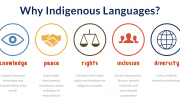Edmonton, AB – The Supreme Court of Canada ruled on October 11 that the federal government does not have to consult with First Nations when drafting new legislation. In an appeal brought forward by the Mikisew First Nations, the majority of the judges ruled that parliament must act “honourably” toward Indigenous persons during the legislative process but there is no requirement to consult before a bill is tabled.
While the Mikisew Cree First Nation is disappointed with the Supreme Court of Canada’s decision in Courtoreille v. Canada, their struggle to defend their treaty rights continues. Though the ruling means provincial and federal governments do not have the duty to consult about legislation threatening First Nation rights, Mikisew expects Canada to live up to the statements made in court that it would consult.
“I wish to first recognize Mikisew Cree First Nation, Chief Archie Waquan, and former Chief Steve Courtoreille, in their fight to protect our Inherent and Treaty Rights through a court system that is not our own,” stated Assembly of First Nations Alberta Regional Chief Marlene Poitras.
“My disappointment today is only surpassed by my deep frustration to see a missed opportunity for meaningful involvement of First Nations in the legislative process, a process that can have deep and lasting impacts on our peoples, our lands, our waters, and our Treaty and Inherent Rights.”
The decision ends Mikisew’s 2013 legal challenge to the previous federal government’s cuts to Canada’s environmental protection laws. Through Bills C-38 and C-45, the Harper government changed the Canadian Environmental Assessment Act, the Fisheries Act, the Species at Risk Act, and the Navigable Waters Protection Act, drastically reducing federal oversight over fish and their habitat, navigable waters, and species at risk. The Bills also reduced the number of projects requiring federal environmental assessments and reduced the scope and depth of assessments for those projects.
“We are very disappointed that the court refused to advance reconciliation with this case,” said Mikisew’s legal counsel, Robert James.
“The lack of consultation on these Bills led to bad laws, which resulted in failures like the Trans Mountain Pipeline Expansion Project and weaker environmental protection for all Canadians.”
The Harper Government passed these laws without consulting with Mikisew and other affected First Nations. At the Federal Court, Mikisew successfully argued that governments have a legally binding duty to consult First Nations when developing legislation that may impact the rights of First Nations. After the Federal Court of Appeal overturned the earlier ruling in 2016, Mikisew took its case to the Supreme Court of Canada, which has upheld the Federal Court of Appeal’s decision.
Mikisew Chief Archie Waquan said the ruling was a missed opportunity. “Mikisew and other First Nations have valuable knowledge, laws and experience to contribute. We should be at the table with government not reacting after the fact through litigation.”
This decision does not end Mikisew’s fight to protect its treaty rights. Chief Waquan noted the decision does not prevent the Crown from actually consulting. “The Crown has said they could and would consult and we will hold them to that promise.”
This decision is not the end of our journey to protect our lands and waters, concluded Regional Chief Poitras. “The Supreme Court held that the government must act according to the Honour of the Crown and we will continue to hold the federal government to that high standard.”
Background
Mikisew Cree First Nation signed Treaty 8 in 1899. The Mikisew Cree continue to live a traditional lifestyle where, even today, most of their members in Fort Chipewyan rely on “country foods” such as fish, birds, and moose for a significant portion of their diet.
Athabasca Delta is the heart of their traditional lands, which range over much of the area where the Athabasca Oil Sands deposits have been found. Mikisew Cree First Nation shares this territory with four other First Nations that make up the Athabasca Tribal Council. 2900 people make up the Mikisew First Nation. Their governing body is made up of six Councillors and a Chief.
Since Treaty 8 was signed, many large scale industrial developments have affected Mikisew lands and waters, with the pace of development increasing significantly over the past decades. In 2005, Mikisew made history when it won a landmark case at the Supreme Court of Canada, which established that the Crown had to consult First Nations with historical treaty rights. Mikisew continues to employ a variety of strategies to seek protection of its rights and culture and to create opportunities for the nation. The Supreme Court ruling today is the result of a lengthy legal challenge by the Mikisew Cree which began in 2012.







Be the first to comment on "Supreme Court rules ministers do not have to consult with First Nations when drafting laws"